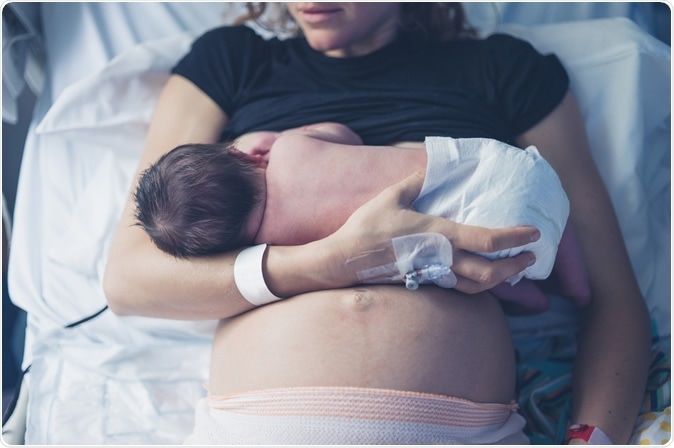Since the novel coronavirus infection emerged a couple of months ago, guidelines about its treatment and precautionary measures are still evolving based on evidence and research. For mothers and infants, there is contradicting information on whether they should be kept together or separated for fear of transmission.
Dr. Alison Stuebe, the President of the Academy of Breastfeeding Medicine and a professor in infant and young child feeding at the Carolina Global Breastfeeding Institute, notes that there is no current evidence showing that early separation of infants and mothers with suspected or confirmed coronavirus infection improves outcomes.
She added that while there are benefits of separating mothers and their newborns during the hospital stay, it can negatively impact them, as shown in the report published in the journal Breastfeeding Medicine.
The World Health Organization (WHO) recommends that infants and mothers should remain together to practice skin-to-skin contact, kangaroo care, and rooming-in. This way, breastfeeding will be established and supported since it has lifelong benefits for both the mother and the infant. Nevertheless, mothers should regularly wash their hands, disinfect surfaces, and wear a mask if they have a cough.
The U.S. Centers for Disease Control and Prevention (CDC), however, recommends separating the infant from an infected mother temporarily until the mother is no longer contagious. This way, the infant will not contract the viral infection. It notes that facilities should consider temporarily separating mothers from their infants. During separation, it urges mothers to continue breastfeeding through expressed breast milk to be given to the baby by a health caregiver.
The health agency also recommends that mothers can breastfeed their babies by wearing a face mask and washing their hands before each feeding. They encourage mothers to express breast milk by following the recommendations for proper pump cleaning.

Study: Should Infants Be Separated from Mothers with COVID-19? First, Do No Harm. Image Credit: Lolostock / Shutterstock
Separation risks
The author noted that separation might not prevent infection. A study out of China conducted in March looked at infants born in Wuhan City, where the virus first emerged. The infants were born to mothers with active COVID-19 infection via C-section and were placed in strict isolation as a precautionary measure. While the babies were safe from infection during the hospital stay, these measures did not guarantee that the infant would not contract the virus after discharge.
For instance, not all families have the facility at home to promote social distancing and isolation. There are instances that other members of the family may be carriers of the virus, too. Separating infants may delay the infection, but not prevent it.
Kangaroo care and skin-to-skin contact have provided many health benefits for newborns. Infants who are separated from their mothers may have higher respiratory rates and heart rates, while their blood sugar levels may be lower. Lack of skin-to-skin contact may affect the baby’s health.
Further, when infants and mothers are separated right after birth, the mother may feel high levels of stress. Stress levels may be high since she was diagnosed with a contagious and pandemic disease, and it can skyrocket when she cannot hold her infant or even breastfeed him or her.
Breastfeeding may also be affected due to separation. Breast milk is best for infants, while expressed breast milk provides the needed nutrients, latching helps establish adequate milk supply. Separation interferes with the provision of maternal milk to the infant, disrupting innate, and specific immune protection. Breast milk provides antibodies to the infant, which is essential, especially when a pandemic is ravaging across the globe. Also, breast milk contains innate immune factors that mitigate the impact of viral infections and essential oligosaccharides.
Breastfeeding also reduces the risk of infant hospitalization for pneumonia. When mothers and infants are separated, it decreases breastfeeding duration, which may make infants 3.6 times more likely to be hospitalized for pneumonia.
“Separating mother and baby immediately after birth may make the infant more vulnerable to severe respiratory infections, including COVID-19, in the first year of life,” the researcher said in the paper.
Lastly, the commentary notes that separating mothers and infants may further impose a burden to the health system since they need to provide twice the resources such as hospital rooms, healthcare providers, and two sets of personal protective equipment (PPE) each time a health worker enters or leaves the rooms.
“At the time of writing, we have no evidence to show that early separation improves outcomes. As we navigate the COVID-19 pandemic, I am hopeful that we can center mothers and babies and remember to first do no harm,” Dr. Stuebe added.
Source:
Journal reference: